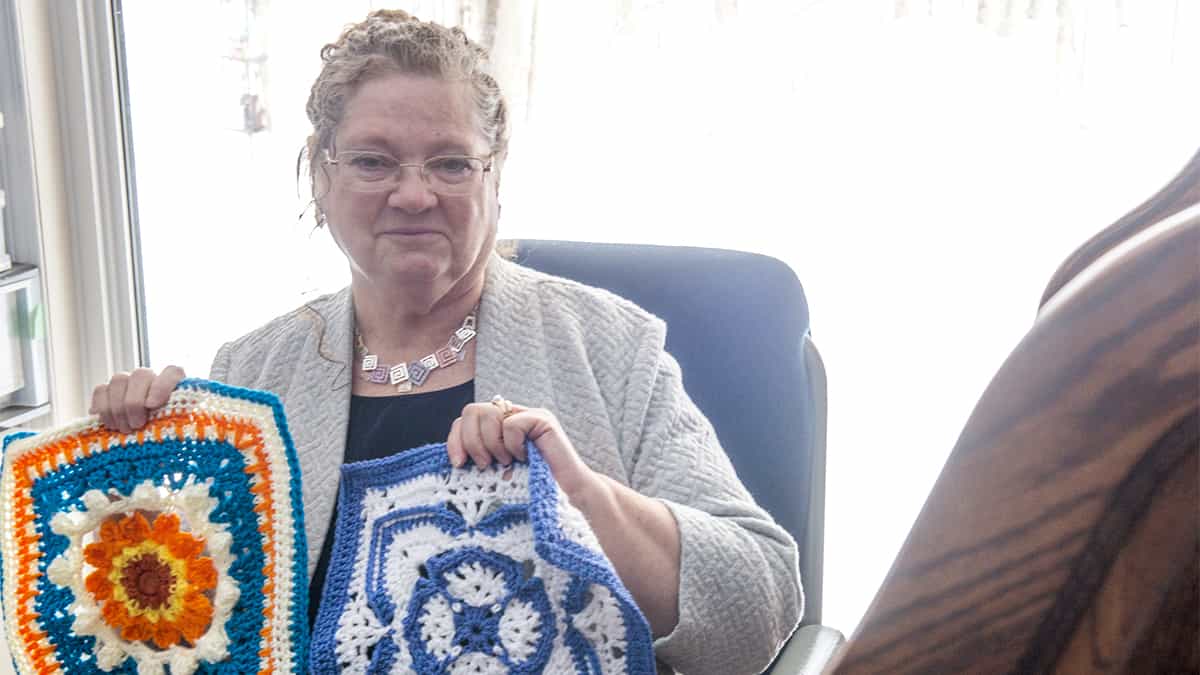After a month of improvement in the COVID-19 situation in Waterloo Region, indicators are headed in the wrong direction again.
At midweek, there were 419 active cases, up from 338 a week earlier. The virus had hospitalized 40 people, up from 31, with the death toll at 228, an increase of six from the same point last week.
“Our indicators are no longer improving,” said medical officer of health Dr. Hsiu-Li Wang at the weekly briefing February 26. “Our team has noticed a growing number of cases in the last three days. Our weekly incidence rate, up until yesterday is around 50 to 55 cases per week. That is slightly up from last week where we were at between 45 and 50 cases per week per 100,000 residents
“I am becoming concerned. We will have to watch our indicators closely,” said Wang.
Waterloo Region Public Health’s COVID-19 dashboard has now been updated to include a section for variants of concern located, tracking the new strains as they appear in the area.
“We continue to see a rise in the number of variant cases, which is not unexpected. Public Health Ontario is screening all positive cases of COVID-19 for variance. As projected by provincial modeling, the percentage of cases which are variants has been increasing at a similar pace … to that of Ontario. To date, a total of 67 cases have been identified in one of the regions. Of the 67 total variant cases, seven have now been confirmed as the B 117 variant, and 60 have screened positive and are awaiting confirmation, including the specific variant,” said Wang, adding that some outbreaks have been connected to the recent increase in variants of concern. “Outbreaks are a reflection of what we see in the community.”
The new strains have caused new protocols for contact management.
“We have implemented enhanced case and contact management for each and every single case of COVID-19, treating every single case as though it may be a variant. I appreciate that people are feeling concerned about variant cases – public health measures work against variants of concern, but we have to be more vigilant than ever before.
“COVID-19, especially variants, can spread easily when people have close unprotected contact, such as without physical distancing or face coverings. And, in enclosed, poorly ventilated spaces or crowded places. That is why we continue to recommend that you avoid social gatherings with those outside of your immediate household. Limit non-essential trips outside your home. Practice physical distancing, wear a face covering that fits snugly. Wash your hands often with warm water and soap, or an alcohol-based hand sanitizer. Avoid enclosed poorly ventilated spaces and crowded places. Stay home when you are sick isolate from household members and schedule an appointment for testing.”
In Wellington-Dufferin-Guelph, there were 155 active cases, up from 92 a week earlier. That catchment area’s cumulative total was 4,752, of which 4,483 (94.3 per cent) have been resolved. There have been a total of 104 fatalities since the pandemic began, increase of one in the past week.
The province is seeing some slowing of cases, with the total now at 302,805, an increase of some 7,000 in the past week.
There have been 6,997 deaths attributed to the virus, representing a mortality rate of 2.3 per cent. The ministry reports 285,262 cases (94.2 per cent) have been resolved.
The latest numbers from Health Canada show 30,252 active cases, a slight decrease in the past week. The cumulative total of confirmed cases now stands at 872,747, with 22,045 related deaths, a mortality rate of 2.5 per cent.









